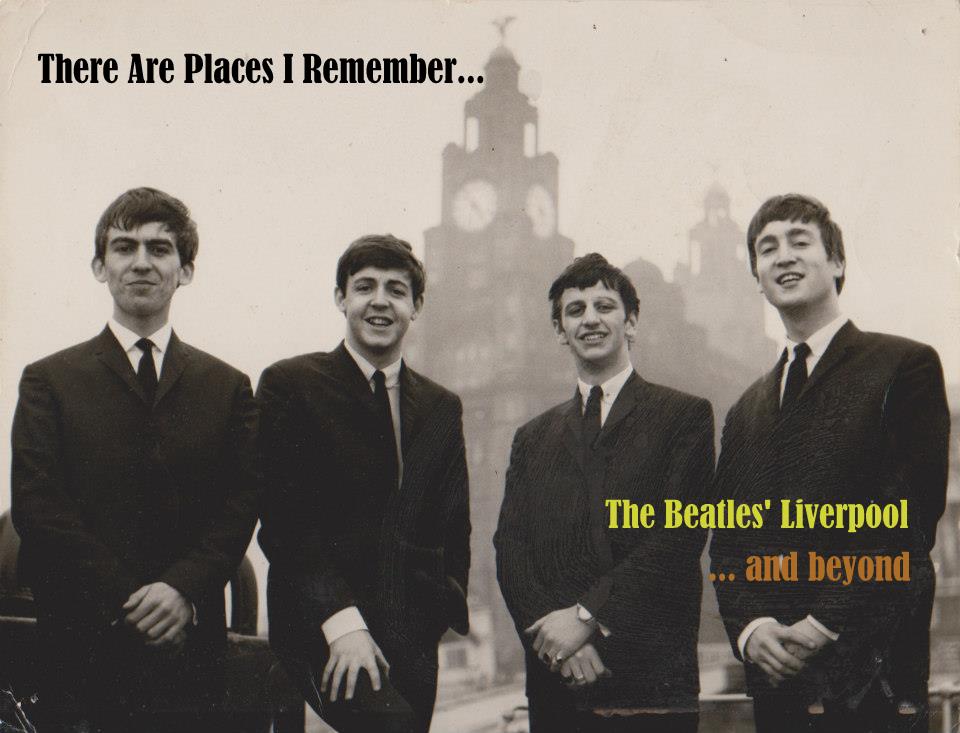The
Institute,
Hinderton
Road,
Neston, Wirral,
Cheshire,CH64 9PE
In the
summer of 1960 the Beatles played six consecutive Thursday night shows at the
Institute (now the Civic Hall) on Hinderton Road in Neston.
The
dates had been arranged for them by Allan Williams while they were touring
Scotland with Johnny Gentle. It’s worth mentioning again that in 1960 Williams
was the only person doing anything to find them work. While nobody in Liverpool
would book them he did manage to secure them three good contracts across the
Mersey – at the Grosvenor Assembly Rooms
in Liscard (with two different promoters) – and for six consecutive Thursday
nights here in Neston, much deeper into rural Wirral.
Les
Dodd of Paramount Enterprises, Wallasey Dodd had been running 'strict tempo'
ballroom evenings at The Institute and the Grosvenor since 1936, and had
belatedly began booking rock 'n' roll acts, grudgingly accepting that rock and
roll / jive sessions was where the money was. He agreed to pay the Beatles £9
an evening which, as fees went in Liverpool at the time, was above average, and
according to Mark Lewisohn Allan didn’t always take his 10% commission.
There
was constant confusion over the group’s name because Allan still considered
them the Silver Beetles and as he was arranging their bookings this is the name
he gave to promoters (who would then advertise them as such on posters and
handbills).
Birkenhead News and Advertiser (Heswall and Neston
Edition), May 1960
Thursday
2 June 1960
Watching
All the Girls Go By. Everyone turns out to see this colourful scene as the
young ones in their pretty dresses follow the pipe band which led the traditional
walk of Neston Female Friendly Society on Thursday. - Photo by Wm.Cull. (June
1960)
On the
first Thursday of June, Neston annually celebrates Ladies (Club) Day. This is a
unique marching day with links back to the Neston Female Friendly Society
during the Napoleonic War.
On the first Thursday in June …..they shall be provided with a convenient place where they shall be allowed to dance till nine o’clock, at which hour they must break up. Any respectable person (not being a member of the society) may be admitted to the dance on their paying the sum of 1s at the door.
Rules of Neston Female Friendly Society (1911)
On 2
June 1960 the crowds had come out as usual to see the ladies walk to the Church
followed by tea as they had since 1814. For the first time the walk had been extended to
include girls from local schools as well as the members of the Ladies Club.
The tea
was at Neston Institute and, after the speeches, the flowers and staff were
cleared the youth of Neston gathered for the evening’s entertainment.

Advance
warning had been given that the regular group, Cass and his Cassanovas, would
be missing from the Institute that evening. They had started to make a name for
themselves and according to the local paper had successfully auditioned to go
on tour with Billy Fury. In fact they hadn’t. Mark Lewisohn writes that they
never worked with Fury and I have not been able to establish why they were
suddenly unavailable for Neston.
It is
unrecorded whether the local girls of Neston were disappointed by the
replacement act but few would have heard of The Silver Beetles in advance.
Songs
featured in the Beatles repertoire at this point included Hallelujah! I Love
Her So, Wild Cat, Besame Mucho, Matchbox, That’s When Your Heartaches Begin,
I’ll Always Be In Love With You, Ramrod, Movin’ and Groovin’, Cathy’s Clown,
Youngblood, One After 909, Hello Little Girl, Lend Me Your Comb, Rock and Roll
Music, Whole Lotta’ Shakin’ Goin’ On, Red Sails In The Sunset, Money (That’s
What I Want), Sweet Little Sixteen, and Long Tall Sally.
This
opening night at Neston was their first advertised headlining appearance
anywhere and although that referred to them as The Silver Beetles, a Wirral
newspaper reporter from the Birkenhead News and Advertiser (Heswall and Neston
edition) spoke to the group this first evening and the resulting article got it
right – they were The Beatles with an “A” (and they are).
Interestingly,
John excluded, the stage names adopted for the Scotland tour by Paul, George
('Carl') and Stuart were still in use. The article appeared on the front page
of the 11 June 1960 edition. John was given a copy of the cutting in 1964 and
still had it in 1975, referring to it as ‘possibly the first review of Beatles
ever’ (and it was).
Despite
the rural surroundings violence was rife in Neston, and the Beatles saw plenty
of it. According to Tommy Moore ‘John Lennon loved the fights’ and had a
peculiar delight in watching somebody take a beating. In fact the violence was
so bad that in October 1960 a 19 year old boy was kicked so severely in the
head outside one such dance that he died.

















